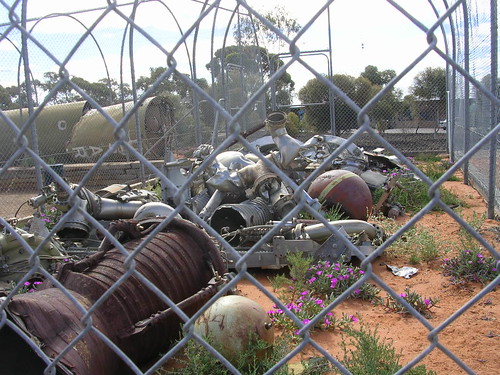Continuation of this post.
The third critique I want to get into here goes beyond Chick-fil-A or gay people or churches or conservatives or liberals or where we find ourselves in these divides: It is the fundamental fact that our own reliance on consumerism as a way of life, as a culture, and as an economic system is fundamentally destructive - literally, figuratively, physically, socially, spiritually destructive. It is consumerism, rather than creativity combined with sustenance, that is not just killing us in terms of health problems (obesity, diabetes, heart disease, strokes), not just in terms of the ecology (which indirectly but even presently affects all of our health in tremendous ways - from ice caps to greenhouse to toxins in the air, land and water), but in terms of actual starvation - specifically of third world children, women and men.
While we argue over whether or not we should support or boycott one fast food franchise, our habits of eating meats and processed foods are actively stealing necessary resources from the majority of the world, just to feed us more (and yet less) than what we need to remain healthy. If American Christians really cared about the starving of the world, we'd eat out a lot less, we'd drastically consume less meat, we would support community farms and gardening so as not to steal grains from overseas. Because when we have such an over-reliance on a small stock of grains (and specifically genetically modified ones), we erode topsoil and limit precious farming land - allocating what property and work third world farmers have towards the propulsion of our already full tummies.
But if we cared for the poor of the world and the US, we wouldn't just stop there. We'd not only not shop at Wal-Mart (which I've made a pretty good habit of boycotting over the last decade ever since I saw what they did to the small stores in my parents' town in Oklahoma. All the stores. Every last one), we'd cease shopping at any ridiculously low-priced store, any big-box, any retail location that doesn't pay living wages to its employees and doesn't pay its vendors enough to maintain a living wage for their employees. We'd shop locally, at little shops, at local machinists, at bakers' shops, getting ingredients from local millers and nearby organic farms, because that money tends to stay in the community - rather than going to some corporate office somewhere where it then goes into hiding. Our money should be circulated to afford more higher-paying jobs.
But then, the majority of poor and lower-middle class people who shop at Wal-Mart do so because it's exactly what they can afford with what little they have. I stock up on highly-processed foods from Aldi because it's 20-60% cheaper than buying from a major grocery chain, let alone a corner grocer, and a lot easier than making food from scratch - which is something that I'd like to do, but, like a lot of this country's poor, I run low on energy and/or time and/or resources when it comes to this. Generally speaking, the working poor cannot afford to shop at the farmer's markets, even when we're well aware how much better they are for us, even when they allow for TANF credits (though I just found out that TANF will match, dollar for dollar up to ten dollars, what is bought each visit to a city-sponsored farmer's market in Chicago - and these are in poor neighborhoods in Chicago such as Austin and West Humboldt Park), even when everybody tells us we should and why we should.
How do we allow for a place to address social-class, poverty, sexuality, racial, gender issues, though? Especially when some of those issues are self-perpetuating, or seemingly at odds with each other - when homosexuals feel that black men and women are working against their interests and black families feel slighted by non-black LGBTQ, or when African Americans are slighted by the service industry - whether they be police or waitstaff or banks - or when Black, Latino or indigenous students become distrustful of the very same educational systems that they are told are supposed to deliver them from poverty. These things do not happen without reason. They are not imagined problems.
I pledge a round table. No kings, no positions above or below. No servants, nobody is slighted nor unwelcome. A table of shared humanity and talents and skills where the learning and the restoring can begin.
We must discover this fact together. We must find out why they are not imagined. We must discover anew the fine art of friendship - extended beyond our borders and the limits we have manufactured to protect ourselves and our ways of life..
And when I say "we" here, I mean "we privileged." Whites, males, heteros, English-speaking, middle and upper class, educated, professional class, Christian, with able bodies and minds and all that stuff that many of us take for granted and in whatever area that we have privileges. Once we recognize our privileges - those bonuses in life that give us a distinct (though rarely recognized) advantage over others who do not share those identity traits - then maybe we are ready to sit at the table. But perhaps we should go over some ground rules before we shed our shoes, elbow up, and grub on down.
We'll touch on those ground rules in the next installment. Let's just say that those who've spoken will need to shut, and the currently shut down will open. Oh, and lots of work, and lots of sharing, and lots of good stuff. I promise. Soon.
But I'd like your ideas. What would be some good ground rules for a great gathering? For a place of learning and sharing? A place of equilibrium, of justice, of feeding.

No comments:
Post a Comment
Be kind. Rewind.